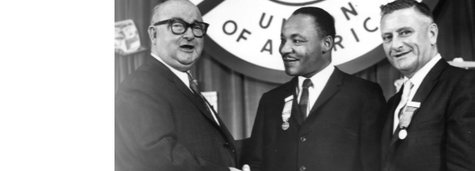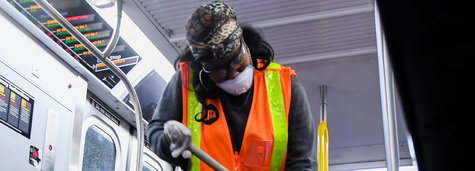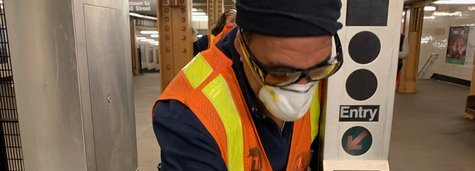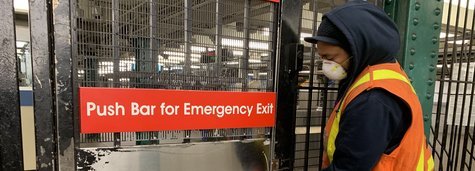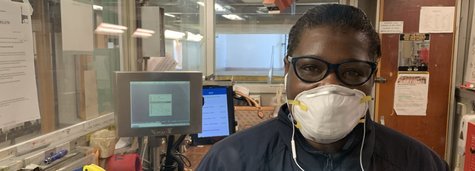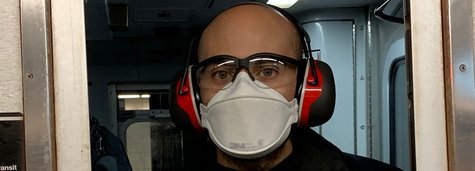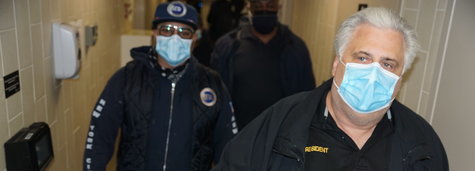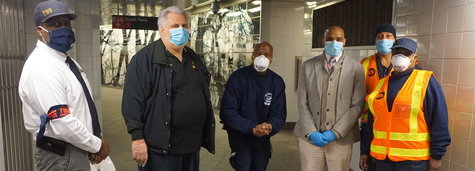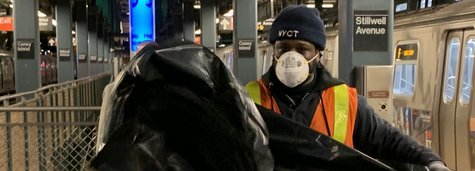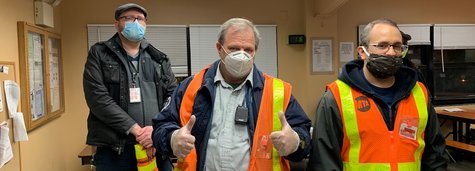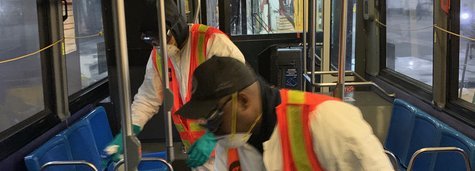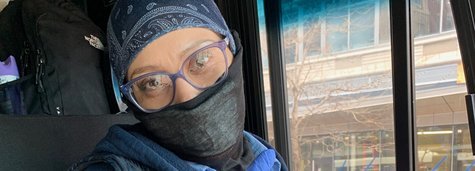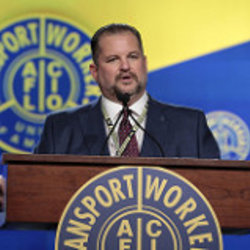The tax that can save the MTA
The MTA’s unprecedented financial crisis is solvable. (From the Daily News)
We do not have to endure savage service cuts and the slashing of day-to-day maintenance. We do not have to accept as inevitable the laying off of thousands of transit workers who have already endured and sacrificed so much keeping NYC moving, and functioning, during this deadly pandemic.
We choose to fight, and we ask you to join us. We must continue to demand action on the federal level — but we also must demand action on the state level.
Yes, our mass transit system urgently needs a bailout from Washington. The MTA’s latest forecast pegs its deficits through 2024 at a staggeringly high figure: $16.2 billion. As been widely reported, COVID has decimated ridership and other sources of transit funding. Only the federal government can deliver on such a huge scale.
The bus and subway system, however, will need more than a one-shot infusion of federal money to keep it safe, reliable and readily available for millions of daily riders. The MTA was projecting operating budget deficits even before the pandemic. It’s up to the Legislature, and Gov. Cuomo, to create new and recurring revenues.
There is one option that would raise more than $1 billion a year for the city’s subway and bus system — while also supporting small businesses and protecting the environment: a $3 surcharge on packages ordered online for delivery in New York City, excluding those with medicine or food.

An estimated 1.8 million packages on average are delivered daily to apartments and homes in the city. Delivery trucks and vans are a ubiquitous presence on our city streets, weaving through our neighborhoods, double-parking in bus lanes and idling outside buildings, day and night.
Shopping online is cheap and convenient. It also means more trucks clogging city traffic, slowing buses, and spewing pollution, all of which have costs of their own.
The delivery siege will only get worse. Online commerce is booming. Amazon’s profits are up 53% compared to last year.
A report the World Economic Forum released in January estimates the number of delivery vehicles in big cities will rise 36% over the next decade if gone unchecked. Carbon-dioxide emissions, blamed for global warming and high asthma rates in urban areas, would rise by 32%.
A delivery surcharge would incentive some consumers to patronize neighborhood businesses instead of reflexively ordering items online from Amazon, Walmart, Etsy or eBay. They might be reminded how local mom-and-pop stores, and bigger retailers like Bloomingdales and Macy’s, are part of what makes a city dynamic, diverse and interesting. These businesses also employ our neighbors.
A delivery surcharge will also undoubtedly encourage consumers, and the Amazons of the world, to more regularly consolidate multiple items into a single package for delivery. Instead of shipping someone a pair of new sneakers on Monday, a pair of socks on Wednesday and a toaster oven on Friday, Amazon could put them into one box and (gasp) make you wait a little. That’s one truck trip down your block by FedEx or UPS instead of three. Now multiply that by millions.
There’s no need to elaborate at great length about the importance of the bus and subway system to the regional and national economy. There are scores of articles and reports on the subject every year. NYU’s Rudin Center for Transportation, for example, recently said the MTA’s doomsday cuts would result in more than 450,000 jobs lost by 2022 and a $50 billion drop in annual earnings.
What gets lost in these reports, however, is the human pain and suffering behind such numbers: parents who are unable to pay the rent or buy groceries; children forced to go to bed cold and hungry; high school students seeing the promise of a college education fade away.
Job losses brought about by any MTA layoffs, meanwhile, would amount to an unforgivable betrayal of the men and women who kept our city functioning during the pandemic. Transit workers have continually ensured that nurses, doctors, firefighters, supermarket employees and other essential workers were able to get to their jobs.
More than 4,000 transit workers, meanwhile, were infected with COVID-19, and more than 130 perished, including train operator Michael Thompson, 60, and structures maintainer Venancio “Benny” Diaz, 58. Born and raised in Harlem, Thompson loved to go fishing and was known for a wonderful sense of humor. He left behind a wife, Loretta, four children and nine grandchildren. Diaz, who emigrated from Mexico, loved listening to the Beatles and making wooden crafts for his 11 grandchildren.
Let’s save the transit system not only for the millions who rely on it every day, not just for the jobs it supports, but also to honor the memory of transit workers, like Thompson and Diaz, who made the ultimate sacrifice.
Samuelsen is international president of the Transport Workers Union and a non-voting member of the MTA board. Carroll represents Park Slope, Windsor Terrace and other Brooklyn neighborhoods in the state Assembly.

